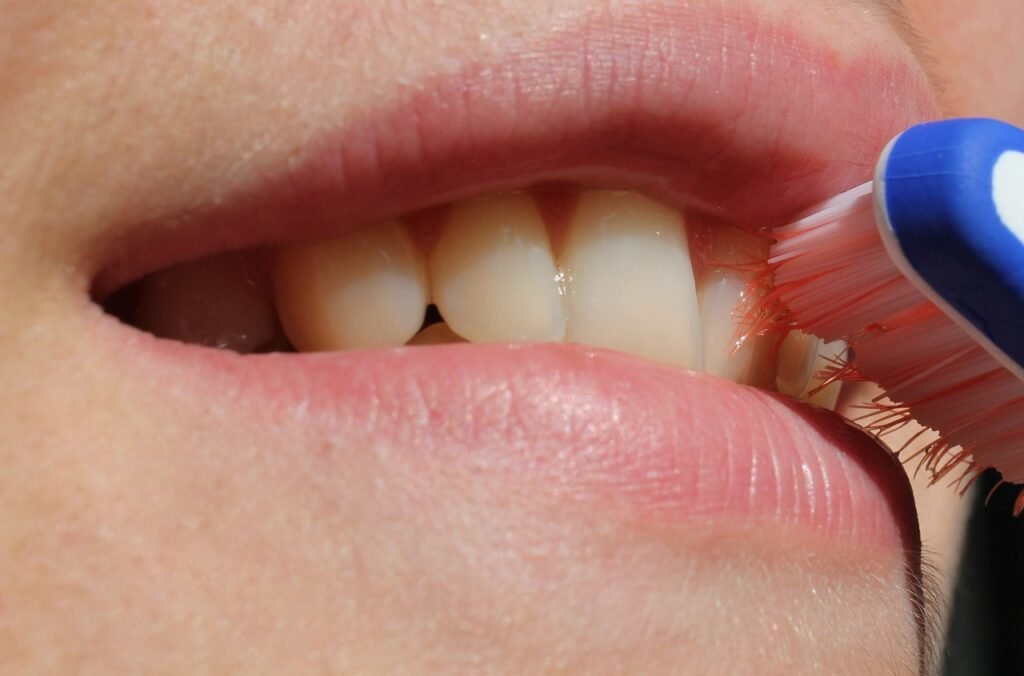
Overview
Understanding how much sugar to consume daily is essential for maintaining optimal health. Sugar intake can affect various aspects of well-being, including body weight, energy levels, and overall risk for chronic conditions such as diabetes and heart disease. But determining the right amount of sugar largely depends on factors such as age, caloric needs, activity levels, and health status. With the guidance of organizations like the American Heart Association (AHA) and the National Health Service (NHS), we can navigate the recommendations for sugar consumption and implement healthier habits.
In this guide, we’ll look at the two primary types of sugar (natural and added sugars), recommended daily intake levels, and tips to reduce sugar in your diet. Understanding these aspects will empower you to make informed decisions about sugar consumption and lead a healthier lifestyle
Related : The Top Protein-Rich Nuts to Incorporate into Your Diet
Table of Contents
Understanding Sugar: Natural vs. Added
To better understand sugar recommendations, it’s important to distinguish between the types of sugar we consume.
- Natural Sugars Natural sugars are found inherently in whole foods like fruits, vegetables, and dairy products. In fruits and vegetables, these sugars are primarily fructose, while dairy contains lactose. Natural sugars are paired with essential nutrients, such as fiber in fruits or calcium in dairy, which aid digestion and help manage blood sugar levels, fitting well into a balanced diet.
- Added Sugars Added sugars refer to any sugars added to foods during processing or preparation. These sugars are typically in the form of sucrose (table sugar) or high-fructose corn syrup and are found in sweets, baked goods, sodas, and many processed foods. Excessive consumption of added sugars is linked to health concerns like obesity, diabetes, and tooth decay.
Recommended Daily Sugar Intake
Although individual sugar needs vary, general guidelines provide a basis for healthy consumption. Leading health organizations worldwide emphasize the importance of limiting “free sugars,” which include both added sugars and sugars naturally present in honey, syrups, and fruit juices.
American Heart Association (AHA) Recommendations
The AHA provides specific daily intake limits for added sugars to support heart health:
- Men: Up to 37.5 grams (about 150 calories or 9 teaspoons)
- Women: Up to 25 grams (about 100 calories or 6 teaspoons)
U.S. Dietary Guidelines
The U.S. Dietary Guidelines suggest that added sugars should make up less than 10% of daily calories. For a typical 2,000-calorie diet, this translates to no more than 50 grams of added sugar per day.
World Health Organization (WHO) and UK NHS Recommendations
The WHO and NHS provide additional guidance:
- WHO: Advises that added sugars should make up less than 5% of total daily caloric intake.
- NHS (UK): Suggests adults limit free sugars to 30 grams per day (approximately 5% of daily calorie intake).
Example for Perspective
To put these recommendations in perspective, a single can of soda or a chocolate bar can contain more than 30 grams of sugar—exceeding the recommended daily intake for some individuals in a single serving
Health Risks of Excessive Sugar Intake
Excessive sugar consumption, especially from added sugars, is associated with several health risks:
- Weight Gain and Obesity Added sugars contribute to calorie intake without providing essential nutrients, often leading to weight gain. Liquid sugars, such as those in sodas, do not make you feel full, making it easy to overconsume calories.
- Diabetes and Insulin Resistance A high intake of added sugars can lead to insulin resistance—a risk factor for type 2 diabetes. Excessive sugar intake stresses the body’s insulin production, impairing blood sugar regulation over time.
- Heart Disease Studies link high sugar intake to an increased risk of heart disease. Excessive sugar contributes to inflammation, high triglycerides, and high blood pressure, all of which are risk factors for heart conditions.
- Tooth Decay Sugar feeds the bacteria in your mouth, producing acid that erodes tooth enamel, leading to cavities. Both natural and added sugars in foods like fruit juices and sweets contribute to dental health issues.
Tips for Reducing Sugar Intake
Lowering sugar intake can promote better health and reduce the risk of chronic diseases. Here are practical strategies to help reduce sugar in your diet:
Check Nutrition Labels
Carefully reading nutrition labels helps you compare products and choose those with lower sugar content. Products listing “total sugars” include both natural and added sugars, but many labels now specify “added sugars” as well.
Choose Low-Sugar Alternatives
Opt for foods naturally low in sugar, like plain yogurt over flavored versions, or unsweetened cereals instead of frosted or chocolate-coated varieties.
Read Ingredient Lists
Sugar goes by many names, including cane sugar, high-fructose corn syrup, molasses, and fruit juice concentrates. If sugar is listed near the top of an ingredient list, it likely has a high amount of added sugars.
Reduce Sugar in Recipes
Reducing the amount of sugar in homemade recipes is an effective way to cut down sugar intake. For example, you can use less sugar in baked goods or replace sugary sauces with spices or herbs for flavor.
Swap Sugary Drinks
Switching sugary sodas for water, low-fat milk, or sugar-free beverages is one of the easiest ways to cut down sugar. If you enjoy fruit juice, limit servings to 150ml daily, ideally consumed with meals to reduce the risk of tooth decay
Related : Health Benefits of Eggs
Sugar in Processed Foods

Limiting processed foods is one of the most effective strategies for reducing sugar intake. Processed foods often contain hidden sugars, and products labeled as “low-fat” may have extra sugar added to enhance flavor. To limit your intake:
- Avoid Sugary Snacks: Choose whole foods like fruits, vegetables, or nuts for snacks instead of candies or baked goods.
- Choose Whole Grains: Processed grains, such as white bread or white pasta, often contain added sugars. Opt for whole grains like oats or whole-grain bread for a lower-sugar alternative.
- Make Use of Spices: Flavor your food with spices like cinnamon or nutmeg instead of sugar.
Tips for Limiting Sugar
Beyond changing specific foods, consider incorporating these easy lifestyle tips to help reduce sugar intake:
Use Spices for Natural Sweetness
Spices such as cinnamon, nutmeg, and vanilla can enhance the natural sweetness of foods, helping you cut back on added sugar. Try adding a dash of cinnamon to oatmeal, coffee, or baked goods.
Try Natural Sweeteners
Natural sweeteners like stevia, monk fruit, or erythritol provide sweetness without calories and are excellent alternatives to sugar in recipes and drinks. However, it’s still essential to use them in moderation and select options with minimal processing.
Eat Whole Fruits Instead of Juices
Whole fruits contain fiber, which slows down sugar absorption and keeps you feeling full. Fruit juices, even if unsweetened, can lead to a quick spike in blood sugar and don’t provide the same satiety.
Replace High-Sugar Snacks with Healthier Choices
Keep low-sugar snacks on hand to avoid reaching for sugary treats. Options like nuts, seeds, Greek yogurt, or fresh fruit satisfy hunger and curb cravings without added sugar.
Practice Mindful Eating
Sometimes, sugar cravings are more about habit than hunger. Practicing mindful eating by paying attention to hunger cues can help reduce unnecessary sugar intake and foster a healthier relationship with food
Sugar and Dental Health

Excessive sugar intake can harm dental health, contributing to cavities and tooth decay. Here’s how sugar impacts your teeth and ways to protect your dental health:
- How Sugar Affects Teeth
When you eat sugary foods, the bacteria in your mouth break down sugar and release acids. These acids erode tooth enamel, creating holes (cavities) and increasing the risk of tooth decay. - Foods That Are Especially Harmful to Teeth
Sticky, sugary foods like candies, caramels, and dried fruits are particularly damaging because they cling to teeth, providing prolonged exposure to sugar. Likewise, sugary drinks like soda or fruit juice bathe teeth in sugar. - Ways to Protect Dental Health
- Limit sugary snacks and drinks.
- Choose whole fruits over juices.
- Drink water or rinse your mouth after consuming sugary foods.
- Brush teeth at least twice daily and floss regularly.
- Visit your dentist for regular cleanings and check-ups
Related : The Worst Foods for Your Brain
Sugar Consumption Trends
In many countries, including the U.S., sugar consumption remains high despite health recommendations to limit intake. Here are some key trends and statistics:
- Sugar Intake in the U.S.
In 2018, adults in the U.S. consumed an average of 72.3 grams of sugar per day—nearly double the recommended limit for men and triple that for women. Sweetened beverages like soda, fruit drinks, and energy drinks are among the leading sources of added sugars. - Youth and Sugar Consumption
Children and teenagers often consume more sugar than recommended, primarily through sugary snacks, candies, and sweetened drinks. This trend contributes to rising obesity rates among youth and increases the risk of developing chronic conditions early in life. - Global Sugar Consumption
Sugar consumption trends vary worldwide, with higher intakes seen in Western nations. However, as diets become more Westernized globally, added sugars are on the rise in other regions, leading to increased rates of diet-related health issues
Reducing Sugar in Everyday Meals
Here are practical tips to reduce sugar intake at each meal, helping you stay within daily guidelines:
- Breakfast: Choose unsweetened cereals or oatmeal and add fresh fruit instead of sugar. Opt for plain yogurt and flavor it with berries or a sprinkle of cinnamon.
- Lunch: Avoid sugary condiments like ketchup and barbecue sauce. Choose sandwiches made with whole grain bread and fill them with lean proteins and vegetables for balanced flavor.
- Dinner: Prepare home-cooked meals using fresh ingredients. Processed sauces and dressings can be high in sugar, so try making your own with natural seasonings and fresh herbs.
- Snacks: Instead of candy or baked goods, reach for nuts, seeds, or fresh fruit. Sliced apple with a thin spread of peanut butter is a satisfying low-sugar option.
- Drinks: Stay hydrated with water, herbal teas, or sparkling water. If you like flavored drinks, try adding lemon, mint, or cucumber to water instead of opting for sugary sodas
Related : The Best Beverages to Boost Your Brain Health
The Benefits of Reducing Sugar Intake
Reducing sugar intake offers numerous health benefits, including:
Better Weight Management
Cutting back on sugar can reduce excess calorie intake, supporting weight loss or maintenance goals. Many sugary foods are calorie-dense but nutrient-poor, so swapping them for nutritious options can help you feel fuller on fewer calories.
Improved Heart Health
Excessive sugar intake is linked to increased blood pressure and inflammation, both of which can strain the heart. Reducing sugar can lead to healthier cholesterol levels, better blood pressure control, and a reduced risk of heart disease.
Reduced Risk of Type 2 Diabetes
Consuming less added sugar can help stabilize blood sugar levels and improve insulin sensitivity, lowering the risk of developing type 2 diabetes.
Enhanced Energy Levels
High sugar intake often leads to rapid spikes and crashes in blood sugar, leaving you feeling tired. A balanced diet with limited added sugars can lead to more stable energy levels throughout the day.
Healthier Skin
Reducing sugar may improve skin health by lowering inflammation, which is a factor in skin conditions like acne. High-sugar diets are linked to increased production of advanced glycation end products (AGEs), which can affect skin aging.
Better Dental Health
Limiting sugar intake reduces the risk of tooth decay and cavities. Sugar encourages the growth of bacteria in the mouth that damage tooth enamel, leading to oral health issues
Related : The Best Time of Day to Drink Coffee
The Takeaway
Understanding and managing sugar intake is essential for long-term health. By recognizing the difference between natural and added sugars and adhering to recommended guidelines, you can make informed choices that support a healthier lifestyle. Small changes, such as reading nutrition labels, opting for whole foods, and choosing natural sweeteners, can have a big impact on reducing sugar intake.
Reducing sugar not only helps with weight management but also lowers the risk of chronic diseases like diabetes, heart disease, and tooth decay. Practicing mindful eating and gradually implementing these strategies into your daily routine can lead to sustainable habits that benefit your health
Related ; Are Sunflower Seeds Good for You? Nutrition, Benefits, and More
Remember: While it’s essential to limit added sugars, enjoying small treats occasionally as part of a balanced diet is perfectly fine. The key lies in moderation and making consistent, health-conscious choices
Frequently Asked Questions
How much sugar is recommended per day?
The American Heart Association recommends that men limit added sugar intake to 37.5 grams (9 teaspoons) per day and women to 25 grams (6 teaspoons) per day. These limits apply to added sugars, not natural sugars found in whole fruits and dairy.
What’s the difference between natural and added sugars?
Natural sugars are found in whole foods like fruits (fructose) and milk (lactose) and come with fiber, vitamins, and minerals. Added sugars are those added during processing or preparation, such as those in soda, candy, and desserts. Added sugars provide calories without nutritional benefits.
What are the health risks of consuming too much sugar?
Excessive sugar intake is linked to obesity, type 2 diabetes, heart disease, and tooth decay. High sugar consumption can also lead to blood sugar spikes and energy crashes, impacting overall well-being.
How can I reduce my daily sugar intake?
Start by reading nutrition labels, choosing foods low in added sugars, and opting for whole, unprocessed foods. Replace sugary snacks with healthier options like fruits, nuts, or plain yogurt. Also, switch from sugary beverages to water, herbal teas, or sparkling water.
Are sugar substitutes like stevia and monk fruit safe?
Yes, natural sweeteners like stevia and monk fruit are generally considered safe for most people. They can add sweetness without calories, making them suitable alternatives for reducing sugar intake. However, moderation is still advised.
Is it okay to have sugar occasionally?
Yes, enjoying sugar in moderation is fine as part of a balanced diet. Occasional treats are not harmful when consumed mindfully, but it’s essential to avoid making high-sugar foods a regular part of your diet.











